What Is Sleep Apnea? Greensboro
Sleep Apnea Solutions with an Emphasis on Education
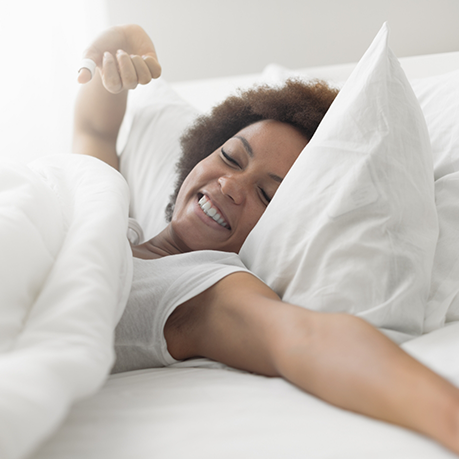
Sleep apnea refers to a serious sleep disorder in which a person’s breathing repeatedly stops and starts. It might not sound serious at first glance, but it has the potential to cause severe health complications that extend beyond feeling drowsy or snoring loudly. Jack Bagley, PA and his brother Dr. Thomas Bagley have spent years treating various types of sleep apnea, and with their help, you can begin enjoying restful sleep each night so that you can conquer each day as your best self. To learn more about sleep apnea in Greensboro, feel free to contact our sleep office for additional information or assistance with scheduling an appointment.
Why Choose SleepMed Solutions for Sleep Apnea Treatment?
The Basics of Sleep Apnea
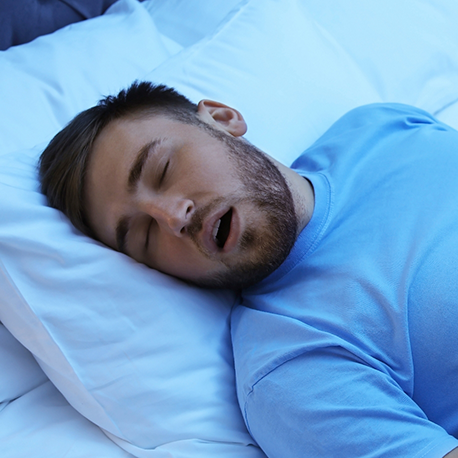
Sleep apnea is a nighttime condition that causes patients to stop breathing at various times throughout the night. These episodes, called apneas, can even occur hundreds of times in a given night and can last up to 30 seconds or longer, ultimately leading to quite a bit of compounded lost sleep.
There are three main types of sleep apnea: obstructive, complex, and central. Each time, your breathing stops too long and too often; however, the reason for this pause in breathing depends on the type.
Obstructive sleep apnea (OSA) is caused by some type of blockage that occurs within the airway, which impedes the natural flow of breathing. Central sleep apnea (CSA) occurs due to problems stemming from miscommunications between the brain and central nervous system. Complex sleep apnea usually involves a combination of the two.
This all makes diagnosis even more vital, as it’s important to not only know if you have sleep apnea, but also which type you have so that your prescribed treatment works as flawlessly as possible.
Learn More About Obstructive Sleep Apnea
What Causes Sleep Apnea?
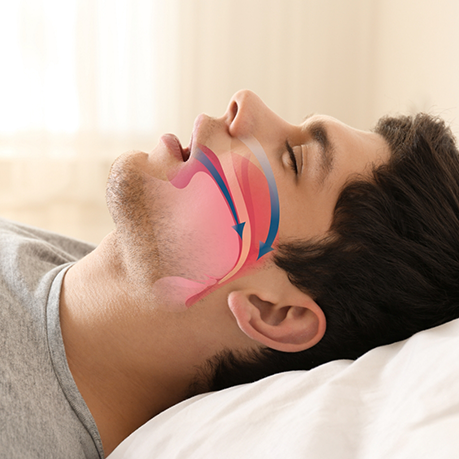
Sleep apnea is caused by disturbances to a patient’s breathing patterns while they’re sleeping; however, the source of these disturbances can vary. In many cases, it’s because soft tissues and throat muscles relax and block the airway, preventing adequate oxygen flow. In response, the brain tells the body to wake up and restore its breathing patterns, and before you know it, you’re forced into a constant cycle of this – though, these awakenings are so brief that you usually don’t even know they’re happening.
Common Sleep Apnea Symptoms
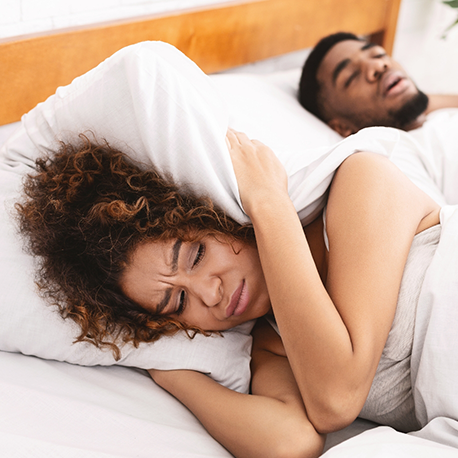
Sleep apnea manifests differently for every patient; this is part of why seeking a professional diagnosis and treatment is so important. However, there are a few symptoms that are overwhelmingly common among many obstructive sleep apnea patients, including things like:
- Excessive daytime sleepiness
- Loud snoring
- Observed episodes of paused breathing during sleep
- Waking during the night and gasping or choking
- Morning headaches
- Morning dry mouth or sore throat
- Mood changes and irritability during the day
- High blood pressure
-
Decreased interest in sex
The Dangers of Sleep Apnea

To put it simply, your body needs sleep. Getting enough rest each night is critical to every aspect of your body’s wellness, including your mental health, cardiovascular health, and metabolic health. Disrupting your body’s normal sleep routine disrupts all of your body’s systems – and this is why sleep apnea is often associated with dozens of serious health issues. These include conditions like:
- Heart disease
- Stroke
- High blood pressure
- Diabetes
- Obesity, including unexplained weight gain and the inability to lose weight
- Dementia, including Alzheimer's disease
- Memory problems
- Cancer
- Depression and other mood disorders
- Sexual dysfunction
These conditions are all especially dangerous and some can even prove fatal if left unaddressed. In fact, people with untreated sleep apnea have roughly a 46% higher risk of premature death. Additionally, people with untreated sleep apnea often spend thousands of dollars more each year on healthcare and many more hours at the doctor’s office.
How Is Sleep Apnea Diagnosed?
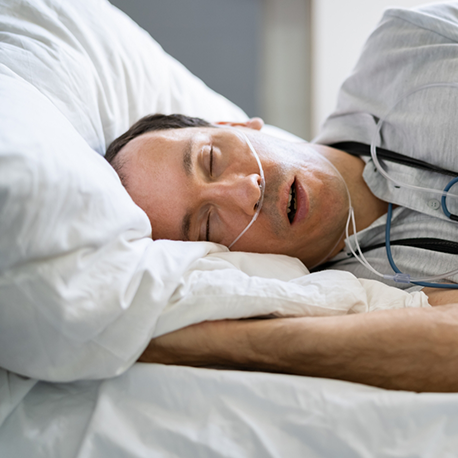
The process for diagnosing sleep apnea involves a home sleep test – but don’t worry, this isn’t the type of test you’ll need to prepare for beforehand. Our office will provide you with a special, portable device that you’ll take home and wear to sleep. The device is small and hardly noticeable, and it monitors your oxygen level, heart rate, air flow, sleep position, snoring, and other relevant factors throughout the night, allowing us to accurately determine the extent of your symptoms so that we can plan out your treatment.
Learn More About Sleep Testing
How Is Sleep Apnea Treated?
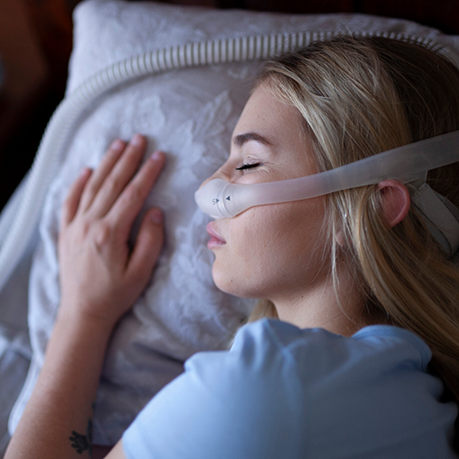
There is no “one-size-fits-all” treatment when it comes to sleep apnea; since every patient differs, there are various forms of treatment. However, many involve the use of either an oral appliance device or a CPAP machine. Both of these methods ultimately ensure that you’re able to receive enough oxygen each night, allowing for far fewer interruptions and more restful sleep. Before we can offer these treatments, you’ll need to come in for an in-person examination so that we can accurately diagnose your condition. This process also involves a non-invasive at-home sleep test.
Learn More About Sleep Apnea Treatment
Benefits of Sleep Apnea Treatment

Sleep apnea treatment doesn’t just benefit your sleep – it benefits your daily life, too! Being at a lowered risk of serious health conditions is a huge boon, but the benefits don’t stop there. Once you start treatment, you’ll find that you have much more energy throughout the day. You’ll also be less likely to fall asleep while at work, in the car, or sitting in front of the TV.
You’ll also find that you’re more likely to want to exercise, and you’ll be better able to exercise. This means that your lung capacity can improve, losing weight could be easier, and you’ll find yourself less irritable and better able to enjoy life.
And when it is time to go to sleep, you’ll love going to bed with your partner. Both of you will be able to sleep through the night, with no elbows thrown or disruptive snoring!
Other Sleep Problems
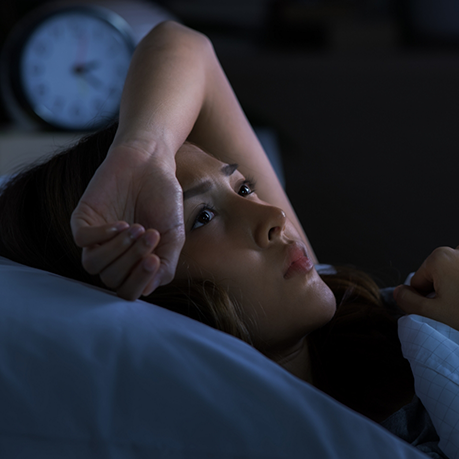
It’s important to keep in mind that not all sleeping issues are indicative of sleep apnea; in some cases, it’s possible that a different type of sleep problem is preventing you from getting adequate rest each night.
Snoring is the hoarse or harsh sound that occurs when air flows past relaxed tissues in your throat, causing the tissues to vibrate as you breathe. Nearly everyone snores now and then, but for some people, it can be a chronic problem. Sometimes it may also indicate a serious health condition.
Insomnia is a common sleep disorder that can make it hard to fall asleep, hard to stay asleep, or cause you to wake up too early and not be able to get back to sleep. You may still feel tired when you wake up.
Sleep Apnea FAQs
Who is Most at Risk for Sleep Apnea?
Certain groups of people tend to have a higher risk of developing sleep apnea. These groups include:
- Men: Statistically, men are about two to three times more likely than women to suffer from sleep-disordered breathing.
- Post-Menopausal Women: Due to changes in hormone levels, women tend to have a higher risk for sleep apnea during their post-menopausal years.
- People Who are Obese or Overweight: If you’re overweight, there’s a higher chance of fat deposits in your neck collapsing and blocking your airway.
- People with Thicker Necks: Having a thicker neck can often mean also having a narrower airway that is more prone to being obstructed.
- People Who Drink Excessively: Drinking a lot of alcohol can cause the muscles in your throat to relax, which can potentially make sleep apnea worse.
- People Who Smoke: Compared to nonsmokers, people who use cigarettes are three times more likely to develop sleep apnea.
- People with Nasal Congestion: In some cases, nasal congestion can raise your risk for sleep apnea by making it more difficult to breathe through your nose.
Will My Sleep Apnea Go Away If I Lose Weight?
If your sleep apnea is related to obesity, then losing weight could indeed go a long way toward making your symptoms less severe. By reducing the presence of fat deposits in your neck, you can lower the chances of the airway being blocked while you’re asleep.
Of course, there’s no guarantee that losing weight alone will be enough to put a stop to your sleep apnea. To confirm whether a sleep disorder is still present, you will need to undergo another sleep test.
Will Oral Appliance Treatment Make CPAP Treatment Unnecessary?
In some cases, a personalized oral appliance can be used in place of a CPAP machine. Many patients prefer this approach because an oral appliance makes no noise, is often more comfortable, and is much easier to travel with.
By itself, an oral appliance typically works best for mild to moderate cases of sleep apnea; however, it may not be the best choice for a more severe disorder. That being said, many patients may benefit from using an oral appliance in addition to a CPAP machine. Our team can help you figure out which treatment option is best for you based on the specifics of your situation.
How Should I Clean My Sleep Apnea Oral Appliance?
If you don’t regularly clean your sleep apnea oral appliance, it could potentially increase your risk for cavities and other oral health issues. As such, when you take your oral appliance out in the morning, the first thing you should do is gently brush it; once you’re done, rinse it off and store it safely in its case. It’s also a good idea to occasionally soak your appliance with a denture cleanser.
